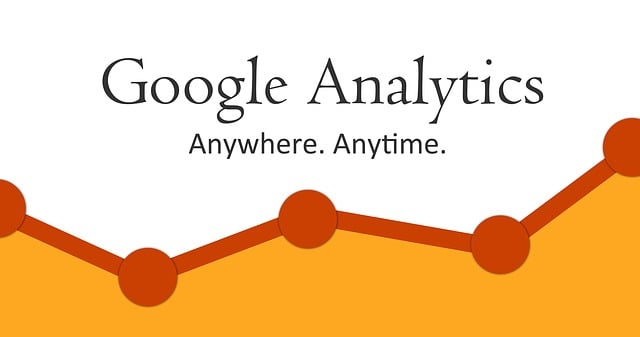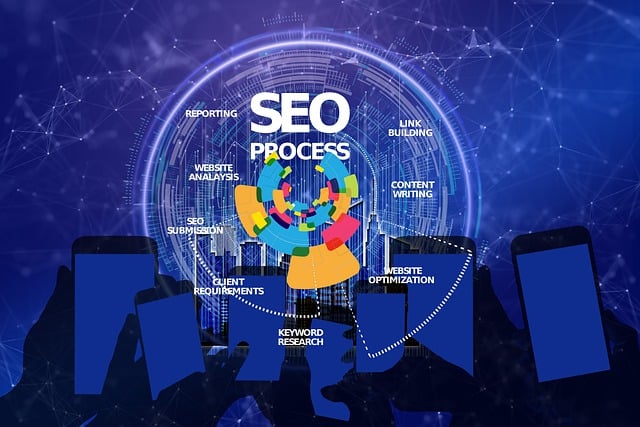Off-Page SEO is a strategic approach to enhance website rankings by focusing on activities outside the site, such as building authority through high-quality backlinks from reputable sources (e.g., engaging content, guest blogging, social media). Key tactics include creating valuable content, influencer outreach, social media engagement, and participating in online discussions. This external promotion signals search engines about a website's value and trustworthiness, improving rankings and credibility over time. Effective Off-Page SEO also leverages user-generated content, guest blogging, influencer collaborations, and online directories to boost brand visibility and drive targeted traffic. Measuring success involves tracking backlinks, brand mentions, social media engagement, and other KPIs to optimize content promotion strategies.
Off-Page SEO is a powerful strategy that goes beyond your website’s boundaries, focusing on external factors that influence search rankings. This article guides you through the essential components of effective off-page content promotion, offering valuable insights and strategies.
From understanding the basics of Off-Page SEO to building high-quality backlinks, leveraging social media, and the impact of influencer collaborations, each section unveils a piece of this complex puzzle. Discover how guest blogging and online directories play a role, and learn to measure success with analysis tools.
Understanding Off-Page SEO: The Basics

Off-Page SEO refers to all activities outside your website that impact its search rankings. It’s a strategic approach focusing on building authority and trust in the eyes of search engines, primarily through high-quality backlinks from reputable sources. This concept is rooted in understanding that search engines, like Google, rely on these external signals to gauge a website’s relevance and value.
The basics involve creating engaging content that naturally attracts links, such as in-depth articles, infographics, or research papers. It also includes promotional activities like guest blogging, where you contribute valuable content to other websites within your niche, earning backlinks in return. Additionally, social media engagement plays a significant role by increasing visibility and potentially driving link acquisitions through shares and mentions. Effective Off-Page SEO strategies aim to create a powerful network of references that enhance your website’s credibility and search engine rankings over time.
Key Components of Effective Off-Page Promotion

Off-page SEO involves promoting your content and brand beyond your website’s boundaries, focusing on external factors that influence search engine rankings. Key components include high-quality backlinks from authoritative sites, social media engagement, and mentions of your brand or products in relevant online discussions. These elements signal to search engines that your content is valuable and trustworthy, enhancing its visibility and credibility.
Additionally, maintaining an active online presence on platforms like social media, forums, and industry-specific communities is vital. Regularly sharing engaging content, participating in conversations, and building relationships with influencers or industry leaders can generate organic interest and drive traffic back to your site. This strategic off-page promotion not only boosts search engine rankings but also fosters a positive brand image and increases the likelihood of conversions.
Building High-Quality Backlinks: Strategies and Tips

Building high-quality backlinks is a cornerstone of successful Off-Page SEO, and it involves strategies that go beyond simple link acquisition. One effective approach is to create compelling content that naturally attracts links from other websites. This can include in-depth guides, original research, or data visualizations that offer unique value to readers. By ensuring your content is high quality, shareable, and resides on a reputable platform, you increase the likelihood of organic backlinks.
Additionally, engaging in outreach activities can significantly boost your backlink profile. This involves reaching out to influencers, bloggers, or industry websites and pitching them relevant content or partnership opportunities. When done right, these interactions can lead to earned links from authoritative sources, enhancing both your site’s authority and visibility in search engine results. Remember, the key is to focus on building relationships and providing genuine value, rather than simply seeking links.
Leveraging Social Media for Off-Page SEO Boost

In today’s digital era, social media platforms have become a powerful tool for enhancing Off-Page SEO strategies. By leveraging these channels effectively, businesses can increase their online visibility and reach a broader audience. When content is shared across various social networks, it generates valuable backlinks from influential sources, which play a pivotal role in improving search engine rankings. Engaging with relevant communities, influencers, and potential customers on platforms like Twitter, Instagram, or LinkedIn can drive organic traffic back to your website.
Social media also facilitates user-generated content (UGC) creation, where satisfied customers share their experiences with your brand. This type of content is highly authentic and trustworthy, boosting your site’s credibility. Moreover, social media trends and viral campaigns can create a buzz around your brand, leading to increased engagement and potential shares, thereby expanding your online reach and further enhancing Off-Page SEO efforts.
Guest Blogging: A Powerful Off-Page Marketing Tool

Guest blogging is a highly effective strategy within Off-Page SEO, allowing businesses to leverage external platforms and established audiences for content promotion. By contributing high-quality articles to relevant blogs or websites in their industry, brands can reach new potential customers and enhance their online visibility. This tactic not only expands the company’s digital footprint but also establishes it as a thought leader by providing valuable insights and expertise.
Through guest posts, businesses can drive targeted traffic back to their website, improve search engine rankings, and build valuable backlinks—all key components of successful Off-Page SEO campaigns. Additionally, guest blogging fosters relationships with influencers and industry peers, opening doors for future collaborations and partnerships that further strengthen a brand’s online presence.
The Impact of Influencer Collaborations on Search Rankings

In the realm of Off-Page SEO, influencer collaborations have emerged as a powerful tool to enhance brand visibility and search rankings. By enlisting the help of influencers with a substantial online following and high engagement rates, businesses can tap into new audiences and gain valuable backlinks. These collaborations often involve sponsored content, where influencers create authentic and engaging material that organically incorporates the brand, increasing its exposure across social media platforms. Such partnerships not only provide an opportunity to showcase products or services to diverse consumers but also contribute to building trust and credibility for the brand.
The impact of these collaborations on search rankings is significant. Google’s algorithms take into account external links as one of the key factors in determining website authority and ranking. When influential voices endorse a brand through their own channels, it sends positive signals to search engines, indicating that the content is valuable and trustworthy. As a result, websites can expect improved organic search rankings over time, leading to increased visibility and potential customer acquisition. This strategy has proven effective for many businesses, especially in today’s digital era where influencer marketing continues to revolutionize brand promotion.
Utilizing Online Directories and Business Listings

In the realm of Off-Page SEO, utilizing online directories and business listings is a strategic move that enhances your brand’s visibility and credibility. These platforms serve as digital landmarks, where potential customers search for local businesses like yours. By ensuring your company information is accurate and consistent across these listings, you’re taking a significant step in building your online presence. Think of it as contributing to a vibrant tapestry of digital information—every updated listing is a thread that strengthens the overall picture of your business.
When you list your business on relevant directories and review sites, you’re not just providing contact details; you’re engaging with your target audience. Well-optimized listings with rich snippets can significantly impact local search rankings, as search engines like Google consider these sources when presenting results. This strategy is a game changer for local businesses, enabling them to compete effectively in the hustle and bustle of today’s digital marketplace.
Measuring and Analyzing Off-Page SEO Success

Measuring off-page SEO success is an essential step in understanding the effectiveness of your content promotion strategies. This involves tracking various metrics to gauge how well your efforts are resonating with the online audience and search engine algorithms. Key performance indicators (KPIs) for off-page SEO include backlink analysis, where you assess the quality and quantity of incoming links from other websites. Tools like Google Search Console and Ahrefs can help identify high-value backlinks, which are crucial for improving your website’s authority and visibility.
Additionally, monitoring mentions of your brand or content across the web is vital. This involves searching for instances where your brand name or specific keywords appear on other sites, blogs, or social media platforms. Analyzing these mentions can provide insights into user sentiment and the extent of your online reach. Social media engagement metrics also play a significant role in off-page SEO as they indicate the level of interaction and interest generated by your content, further enhancing your website’s reputation and search rankings.
